Healing our Community – Promoting Social Cohesion in Rwanda
- September 11, 2017
- Posted by: research
- Category: News and Events

On September 7th, 2017, Rwandan community and national leaders held a dialogue forum on social cohesion at the Institute of Research and Dialogue for Peace at Gisozi. The dialogue forum brought together community members and representatives from the National Unity and Reconciliation Commission (NURC), Ministry of Local Government, other Government of Rwanda ministries, and the parliament.
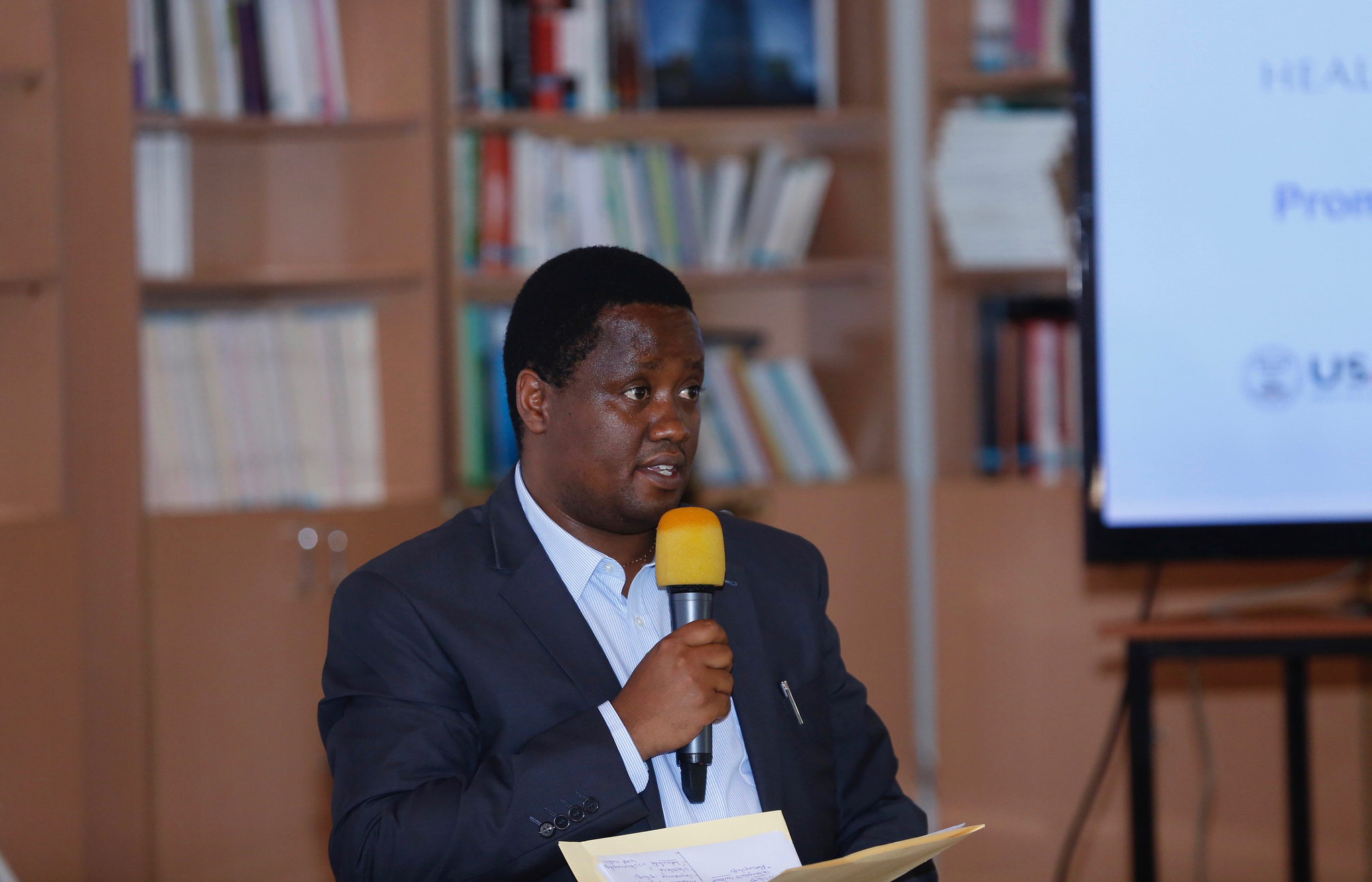
Dr Eric N. Ndushabandi, Director of Institute of Research and Dialogue for Peace (IRDP)
In his welcome remarks, Dr Eric Ndushabandi, he thanked all participants and framed the lessening session: “ this project on healing is in direct link with memory of the past and the trans-generational transmission of traumatic past to young generation. It is important to frame it in the context of post-conflict ( genocide) reconstruction process. In different cases the reconstruction process can choose to forget or to rebuild on basis of the same factors which destructed the society.
Rwanda has embarked towards the very hard and complex nation building approach which integrates memory of the past and of the genocide in particular and the national identity in the reconstruction. This a difficult but important choice for the Rwandan context. Nation building approach consists of considering every context as unique, reconstructing the national identity and integrating memory of the past in process as absolutely important. In the same regards, peace is not anymore coming from outside the society, but it is made by nationals and communities. The approach is to rebuild peace from below. Individuals and communities are the first peace makers and final beneficiaries of all peace building processes.
The project we are evaluating today is framed in this perspective. Individual’s and Community’s memories are part of the reconstruction process. IRDP and partners are contributing in healing those memories and assess their impact on social cohesion process in Rwanda. This is why we brought our IRDP club members and youth champions to share their experiences describing their journey towards social cohesion through healing”.
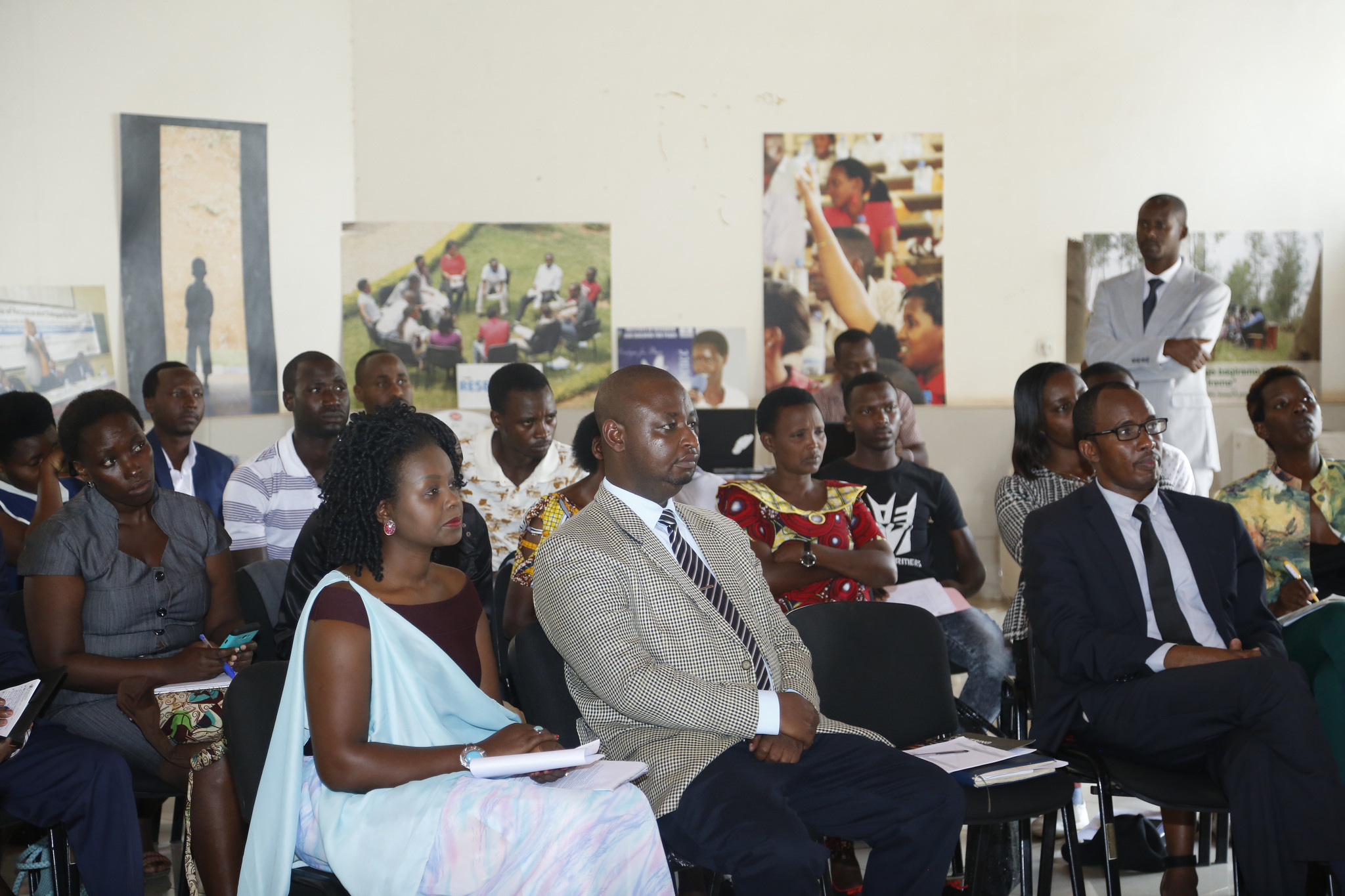
Rwanda has attained an impressive degree of peace, security, and development. Building peace is, however, a long journey and several challenges remain along the way.
The project aims to improve community responsiveness and adaptability to post-genocide needs by establishing links between communities and government officials. Part of the project’s scope is holding listening sessions at the local and national level.
So far, the project has held listening sessions in eight target districts. In doing so, it has helped create effective channels through which policymakers can collaborate and hear directly from communities about the challenges they face.
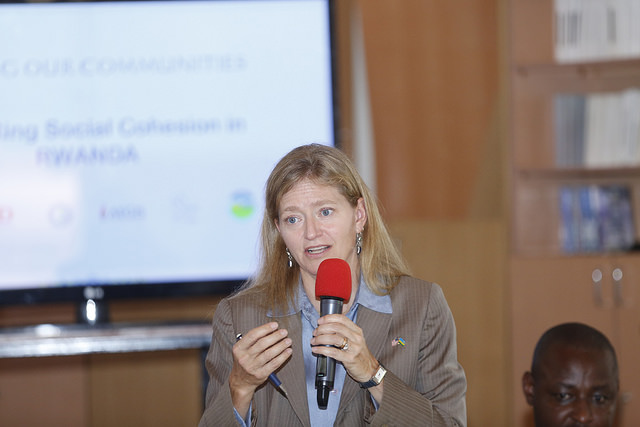
Speaking at the event, Erica J. Barks-Ruggles, U.S. Ambassador to Rwanda, expressed satisfaction with the project’s accomplishments.
“The U.S. government is proud to fund this project. We believe that Rwanda is remarkably resilient for a country that is still recovering from one of the most devastating genocides in modern history. We are honored to be granted the opportunity to help advance the reconciliation process,” she said.
The dialogue forum is part of a 933 million RWF project funded by the U.S. Agency for International Development (USAID), titled Healing our Communities.
The project operates in eight target districts: Gicumbi, Gakenke, Karongi, Nyamasheke, Rubavu, Kirehe, Bugesera and Gisagara. Its implementing partner, Karuna Center for Peacebuilding, and its three Rwandan partners, Institute of Research and Dialogue for Peace (IRDP), Healing and Rebuilding Our Communities (HROC), and Aegis Trust use a comprehensive, inter-generational approach. This approach promotes social cohesion that integrates trauma healing, community dialogue, joint problem-solving and volunteer projects to support the vulnerable.
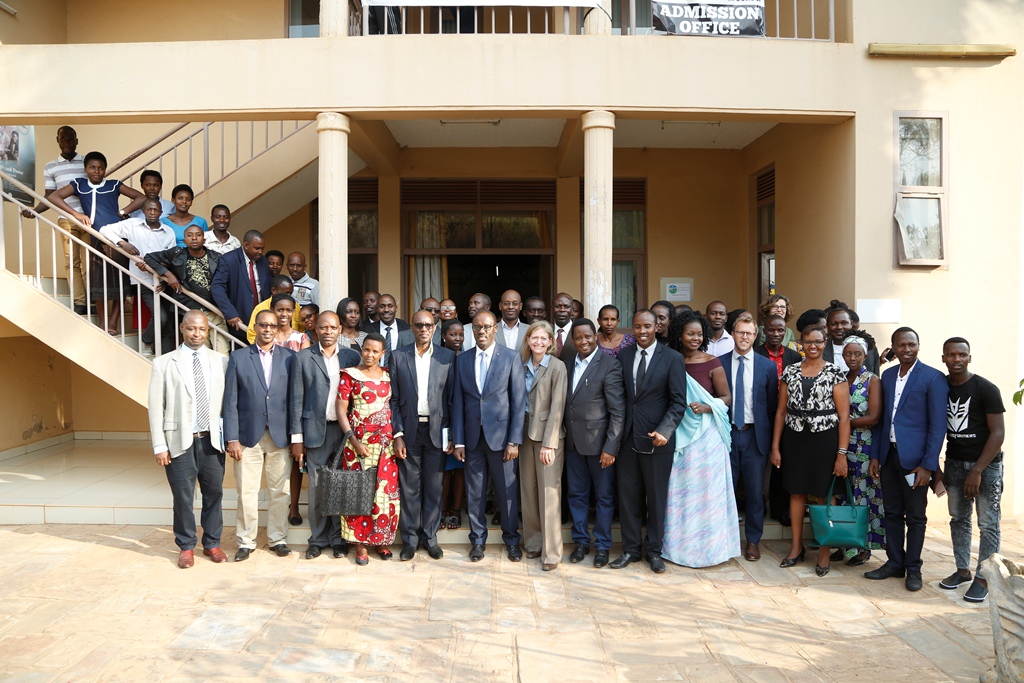
This approach promotes social cohesion that integrates trauma healing, community dialogue, joint problem-solving and volunteer projects to support the vulnerable.
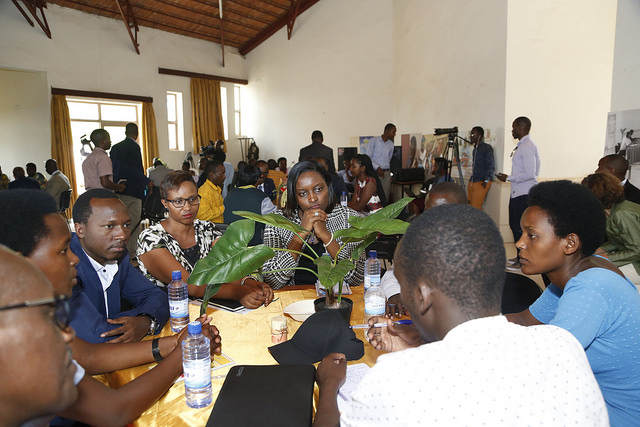
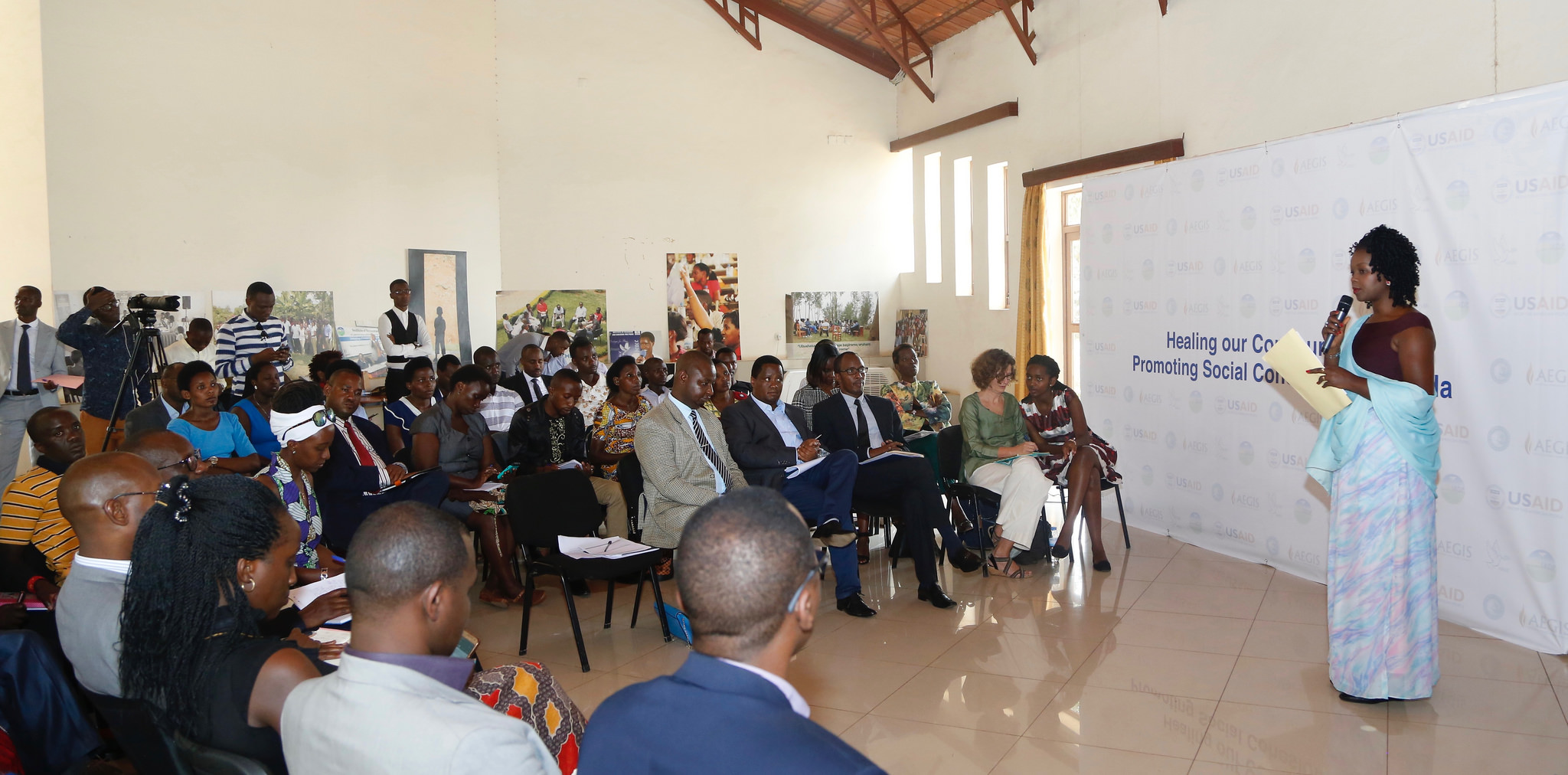
Rosette Sebasoni, Country Director (Karuna Center for Peacebuilding)
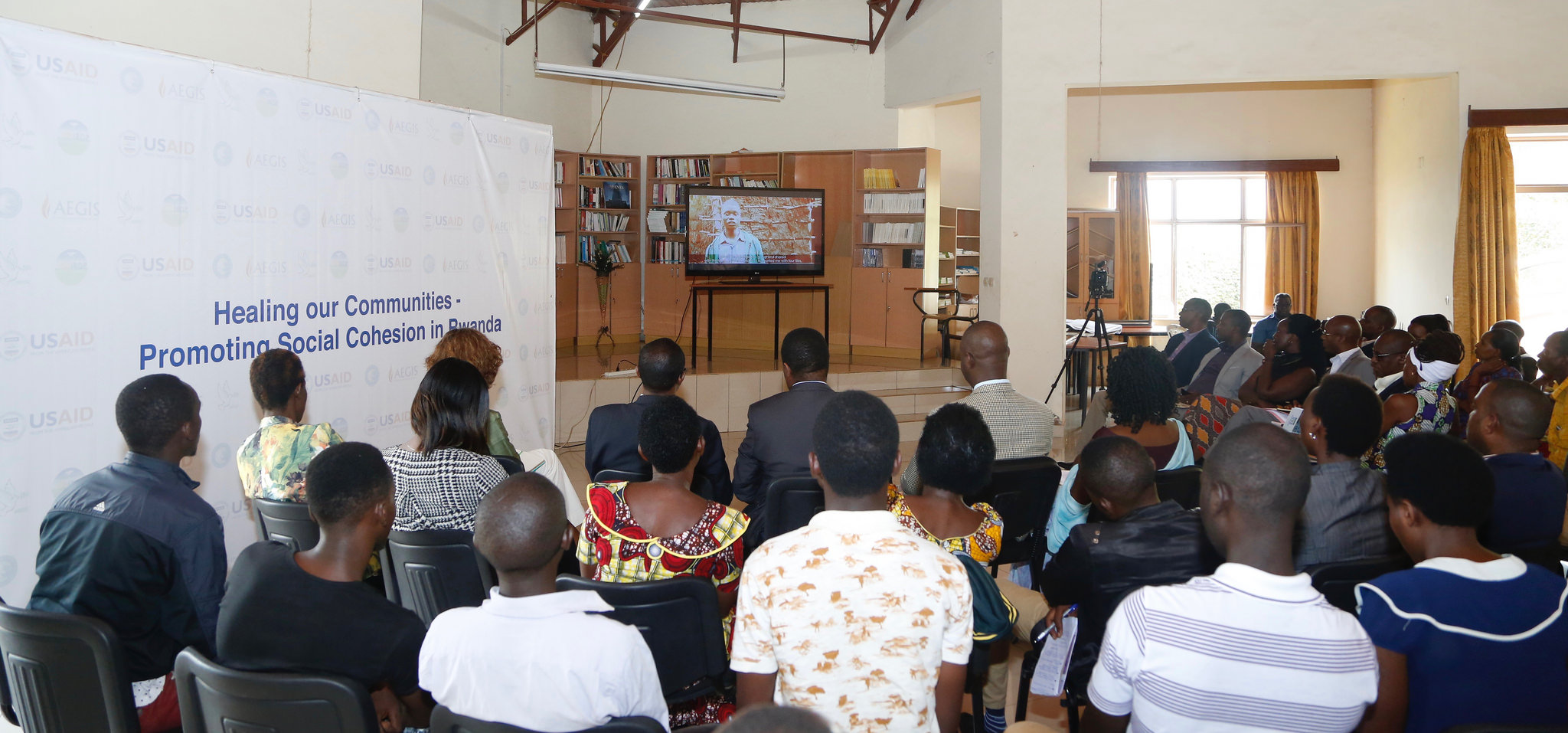
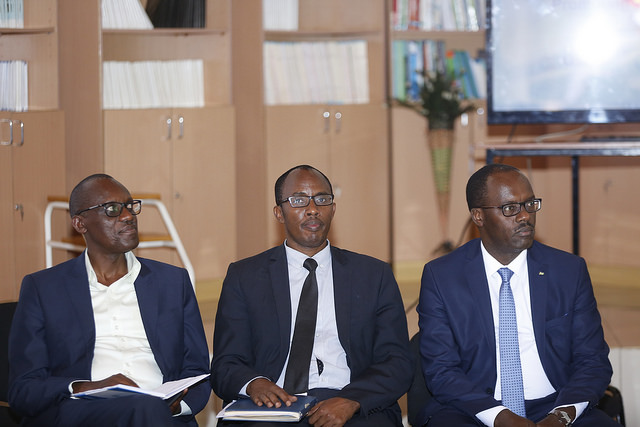
Theodore Mutabazi Rugema, Rwanda Governance Board ( Head of Political parties and Civil Society Organizations), Hon Begumisa Safari Theoneste (Member of Parliament) and Fidele Ndayisaba, Executive Secretary (National Unity and Reconciliation Commission)
